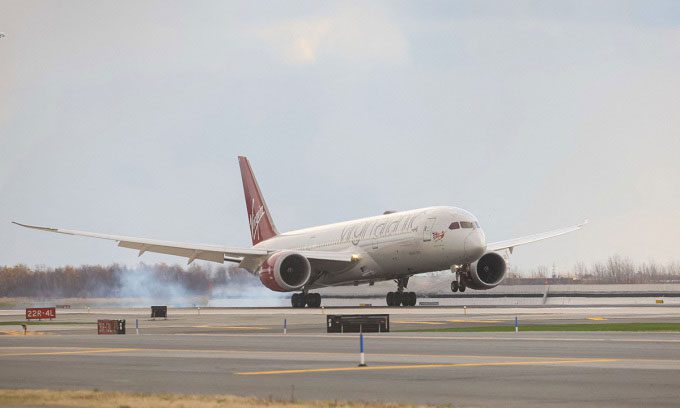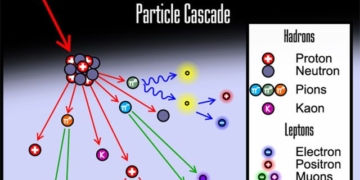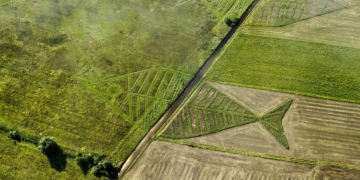The Virgin Atlantic Boeing 787 passenger aircraft, operated by the British airline Virgin Atlantic, flew from London to New York using fuel primarily made from used cooking oil and animal fats.

The Boeing 787 from Virgin Atlantic arriving at John F. Kennedy International Airport, completing the first transatlantic flight using 100% sustainable aviation fuel. (Photo: Brendan McDermid/Reuters)
The Boeing 787 took off at 6:49 PM on November 28 (Hanoi time) from Heathrow Airport in London, carrying billionaire Richard Branson, Virgin Atlantic CEO Shai Weiss, and UK Transport Minister Mark Harper. The aircraft landed at John F. Kennedy International Airport in New York at 2:05 AM on November 29, 35 minutes ahead of schedule. After landing, Harper confirmed that the flight experienced no issues.
Virgin Atlantic announced that the fuel used for the flight on November 28 was primarily made from used cooking oil and animal fat mixed with a small amount of synthetic aromatic kerosene derived from corn by-products.
This flight served as a demonstration to emphasize the goal of reducing emissions and to call for government support. The Boeing 787 will return to London using traditional fuel. The engines used during the flight will be completely drained of sustainable aviation fuel (SAF) and inspected before being operated again with conventional fuel.
Aviation accounts for about 2-3% of global carbon emissions and is more challenging to decarbonize compared to road transport. Today’s commercial jet engines typically allow for a maximum of 50% SAF to be blended with traditional kerosene.
Airlines are looking to sustainable fuels to cut emissions by up to 70%, but high costs and the limited supply of raw materials needed to produce SAF make large-scale production challenging. Currently, SAF represents less than 0.1% of the total jet fuel used worldwide and is priced 3 to 5 times higher than conventional aviation fuel.
Many European airlines aim to use 10% SAF by 2030. The aviation industry’s goal of achieving net-zero emissions by 2050 depends on increasing this ratio to 65%. According to Rolls-Royce CEO Tufan Erginbilgic, SAF is the only solution for decarbonizing commercial flights in the medium term, but analysts believe that the 2030 target will be very difficult to achieve due to the low usage of SAF and its high costs.



















































